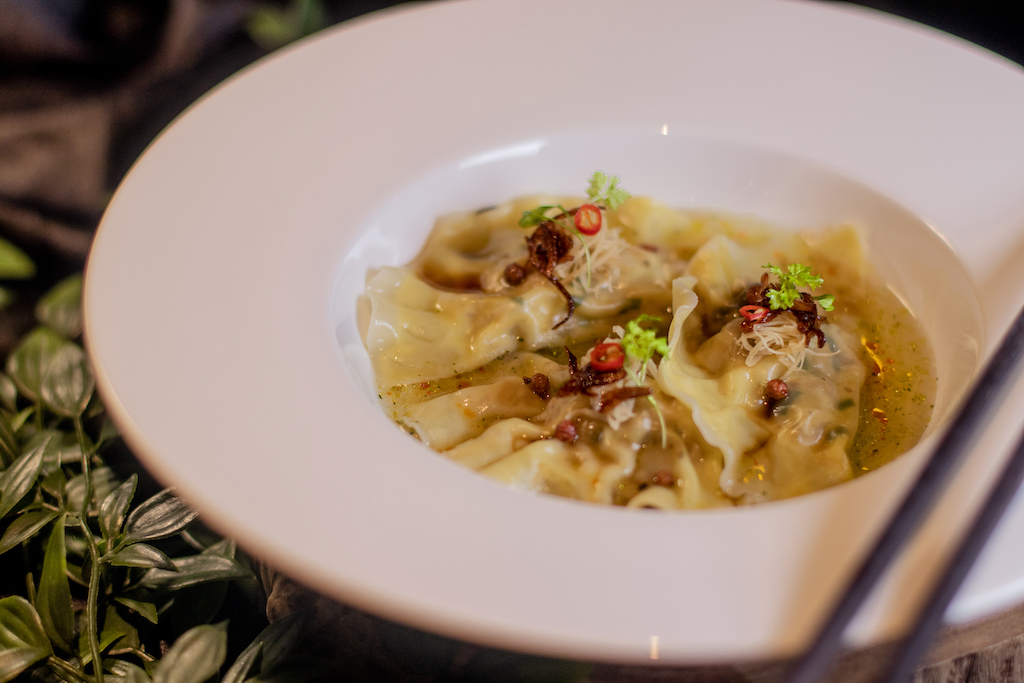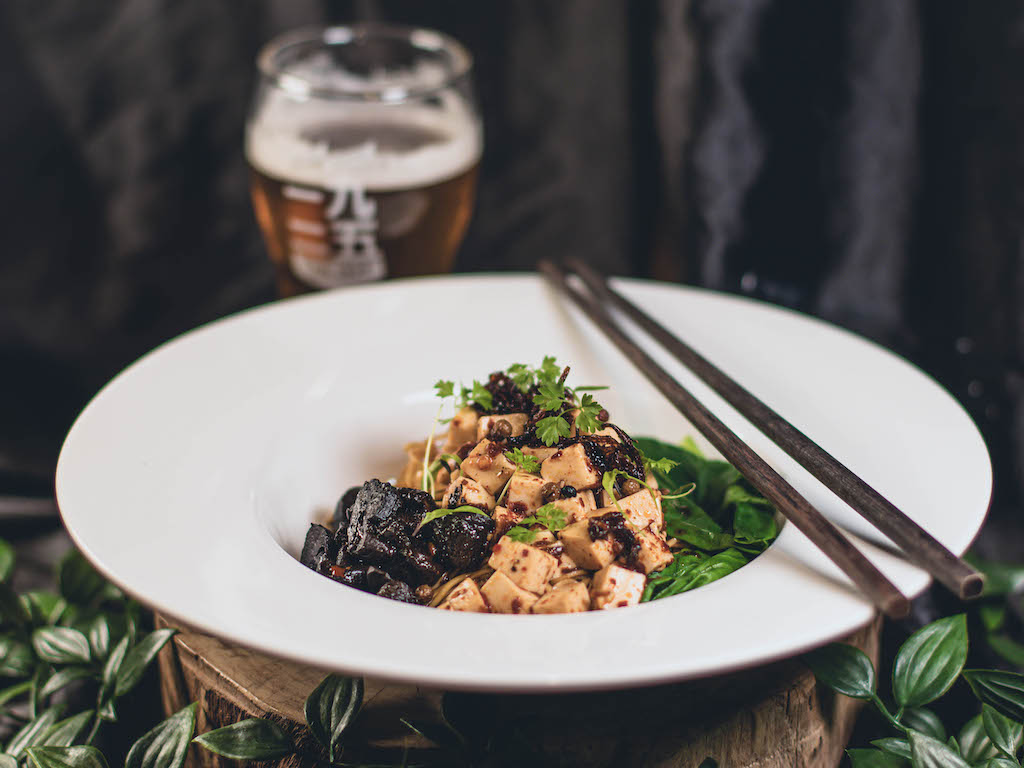4 Mins Read
Malaysian food tech Phuture Foods has recently launched its new vegan pork mince product, Phuture Mince. The plant-based analogue is currently available at a number of restaurants in Singapore, with the startup planning to bring Phuture Mince dishes to over 350 foodservice locations in the city-state. Phuture Foods also plans to make its new vegan product available for retail later this year, before expanding the brand to China, Thailand and the wider Asian market.
Kuala Lumpur-based food tech Phuture Foods, which was founded by CEO Jack Yap in 2018, has recently partnered with several local Singaporean restaurants to offer dishes made with its vegan-friendly pork mince analogue. Called “Phuture Mince”, the plant-based pork alternative is made using non-GMO soy, chickpeas, pea and rice protein, natural beetroot juice extract and lycopene.
Among some of the restaurants offering Phuture Mince dishes to diners in Singapore include The 1925 Brewing Co, Wan He Lou, Tasty Loong by Chef Pung and Yam’s Kitchen, who have recreated regional Asian favourites with the analogue, such as claypot beancurd, meatballs and dumplings.
“It can be used exactly how real minced meat is used,” Yap told Green Queen. “It is a plant-based meat that looks, smells, tastes, feels and cooks like real mince, which can be easily incorporated into a variety of Asian cuisine dishes.”
According to the young startup, their Singapore debut has been met with enthusiasm and strong results since its soft launch in April this year. The 1925 Brewing Co., for instance, recorded that every one sale of its traditional pork dumpling has been matched by 10 orders of Phuture Meat dumplings.

The latest restaurant to join Phuture Foods’ list of restaurant partners is Wheat Baumkuchen, a local healthy rice and noodle bowl chain, widely popular in Singapore’s main business district. Together, the two brands hope to be able to service 1,000 plant-based meals a day, driven by a mission to convince more meat-free diets in the city-state for health and environmental reasons.
“We hope to give meat lovers a chance to try plant-based meats while broadening their understanding of how the meat alternative industry has truly evolved to create products that not only taste good, but are also good for their health and has a better impact on the environment and animals in our ecosystem,” explained Yap.
The coronavirus pandemic has meant that more consumers are aware of the problems of the animal agriculture industry, the company added. Not only does livestock farming generate 18% of global greenhouse gas emissions, drive deforestation and enormous amounts of wastewater, slaughterhouses have been exposed as a major public health risk with instances of viral outbreaks occurring all over the world. Consequent breakdown in the meat supply chain has led to rising meat prices and food shortages, an issue that will particularly concern import-reliant Singapore.

“The shortage we are experiencing now is just a chip off the block of a harsher reality we will face in the long run if we continue on at the rate we used to produce and consume meat,” Yap said to Green Queen.
But even before the pandemic struck, Asian markets have been struggling to maintain its pork supply due to the ongoing African swine fever outbreak. In China alone, more than 100 million pigs were culled in 2019, creating pork shortages and price spikes.
Alongside Phuture Foods, other food techs in the region have gained traction for their pork alternatives, including Green Monday’s Omnipork, which is already popular in Singapore, Hong Kong, Thailand, Taiwan and available in mainland China, as well as China’s own Zhenmeat, which has developed a variety of fungus and pea-based meat alternatives suited for local delicacies such as mooncakes. Impossible Foods’ plant-based beef alternative is also popular in Asian cuisines and available at hundreds of restaurants in Hong Kong, Macau and Singapore.
For now, Phuture Foods’ vegan pork alternative is only available via foodservice, but the startup told Green Queen they will be rolling out across more than 350 restaurants in the city-state in the coming months. However, Phuture Foods says it will also be working on bringing the product to retail stores later this year before expanding to the Chinese, Thai and Asia-Pacific markets. Beyond that, the startup is already planning for more product launches in the near future.
All images courtesy of Phuture Foods.




